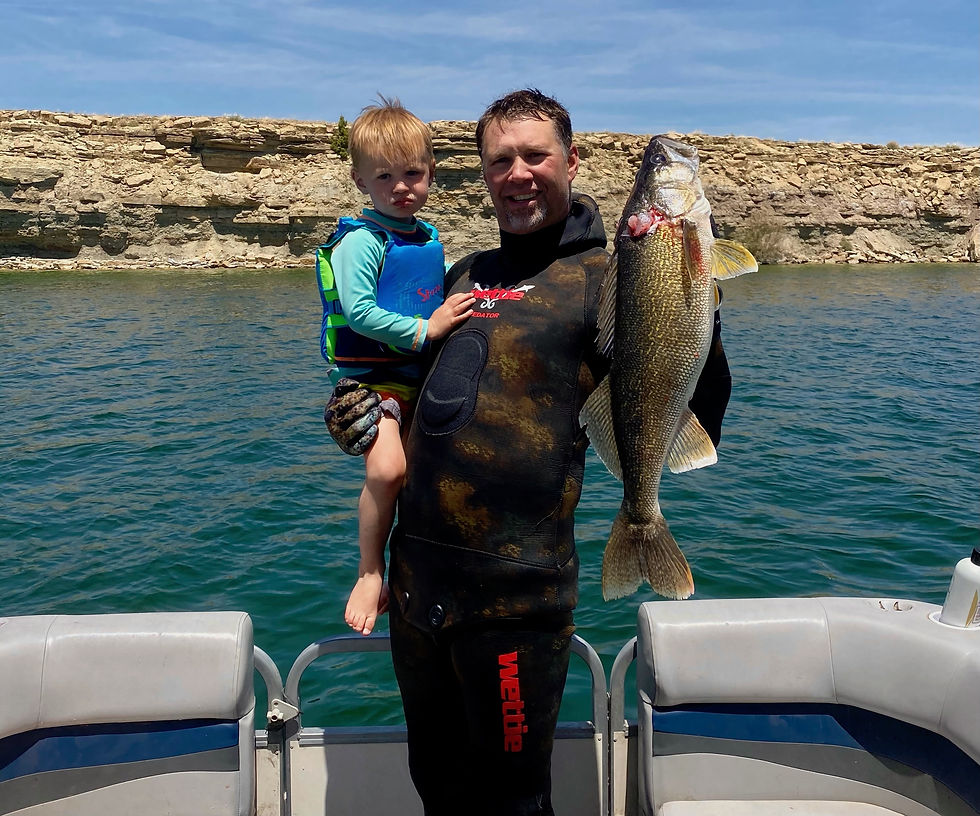5 Ways to Stay in Diving Shape During the Off-Season: Fitness Tips for Spearfishers
- Bret Whitman

- Dec 15, 2019
- 3 min read
Updated: 5 days ago
If you live somewhere with a real winter, you know the frustration of watching the dive season shut down while you sit on the couch losing the fitness you built all summer. Cold water, rough conditions, and short days can keep even the most dedicated spearfishers out of the ocean for months at a time. But losing your diving fitness during the off-season means spending the first weeks of next season getting back to baseline instead of hunting effectively from day one.

The good news is that staying in peak diving shape doesn't require the ocean. With the right training routine, you can maintain and even improve your breath-hold, endurance, and overall fitness during the months you can't dive. Here are five proven ways to stay in shape for spearfishing and freediving during the off-season.
1. Run or Cycle for Cardiovascular Endurance
Cardiovascular fitness is the foundation of every good dive day. Running, cycling, or using a rowing machine builds the aerobic capacity you need for long surface swims, fighting currents, and recovering quickly between dives. Aim for three to four sessions per week at moderate intensity. You don't need to be running marathons — steady-state cardio that keeps your heart rate elevated for 30 to 45 minutes is enough to maintain serious endurance throughout the off-season.
2. Practice Breath-Hold Training at Home
Your breath-hold is a skill that deteriorates without regular practice, but it's one of the easiest things to train at home. Dry static apnea — lying on a couch or bed and holding your breath through structured CO2 tolerance tables — is incredibly effective. Even two to three sessions per week will keep your breath-hold time sharp and your CO2 tolerance high. Apnea walking, where you walk a set distance on a single breath, adds a dynamic component that mimics the oxygen demand of actual diving.
3. Strength Train with Compound Movements
Spearfishing demands a strong core, back, and legs. Compound lifts like squats, deadlifts, pull-ups, and planks build functional strength that directly translates to better diving performance. A strong body handles currents more efficiently, kicks harder, and recovers faster from physically demanding dive days. Two to three strength sessions per week with a focus on compound movements is all you need to maintain a powerful, injury-resistant physique.
4. Stretch and Practice Yoga for Flexibility
Flexibility is one of the most overlooked aspects of dive fitness. Tight muscles and a restricted diaphragm limit your lung capacity and make equalization harder. Regular stretching and yoga improve your range of motion, reduce injury risk, and enhance the deep relaxation that's essential for efficient freediving. Diaphragm stretches in particular should be part of your daily routine — a flexible diaphragm allows for deeper, fuller breaths and reduces the risk of lung squeeze at depth.
5. Swim When You Can Access a Pool
If you have access to a pool, use it. Pool swimming is the closest land-based substitute for actual ocean diving. Swim laps for endurance, practice underwater laps for dynamic apnea, and work on your kick technique with fins if the facility allows them. Many freediving clubs organize structured pool sessions during winter months where you can practice equalization, underwater swimming, and rescue scenarios in a controlled environment. Pool training keeps your water comfort high and prevents the rust that comes from months without getting wet.
Stay Ready So You Don't Have to Get Ready
The off-season is an opportunity to come back stronger, not weaker. Combine cardiovascular training, breath-hold practice, strength work, flexibility exercises, and pool time into a consistent weekly routine, and you'll hit the water on opening day in the best shape of your life. For more spearfishing fitness tips and training advice, visit SpearFactor.com.




Comments